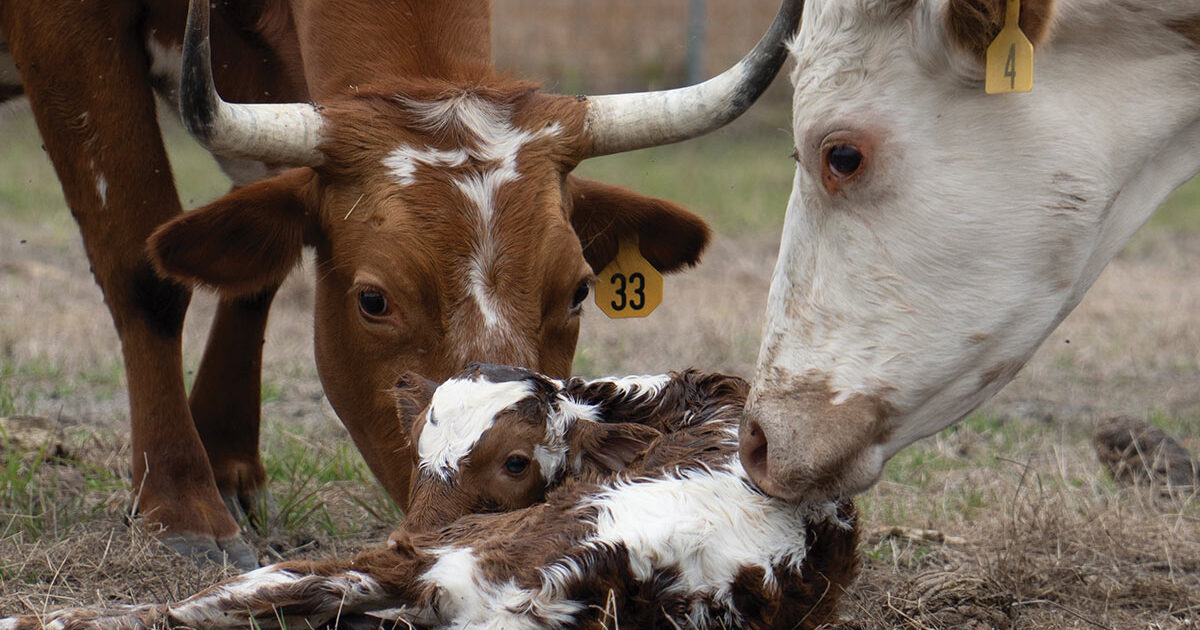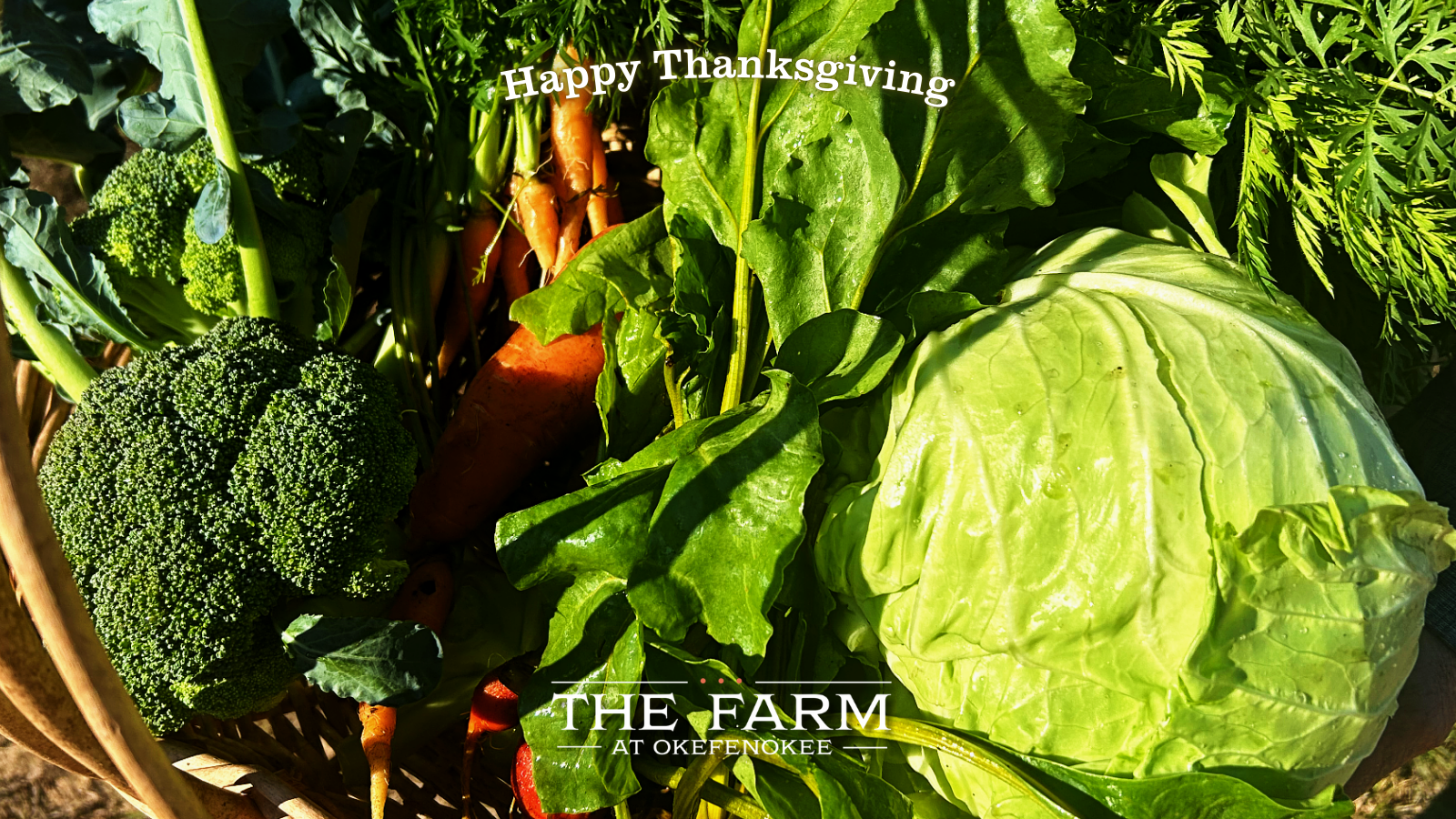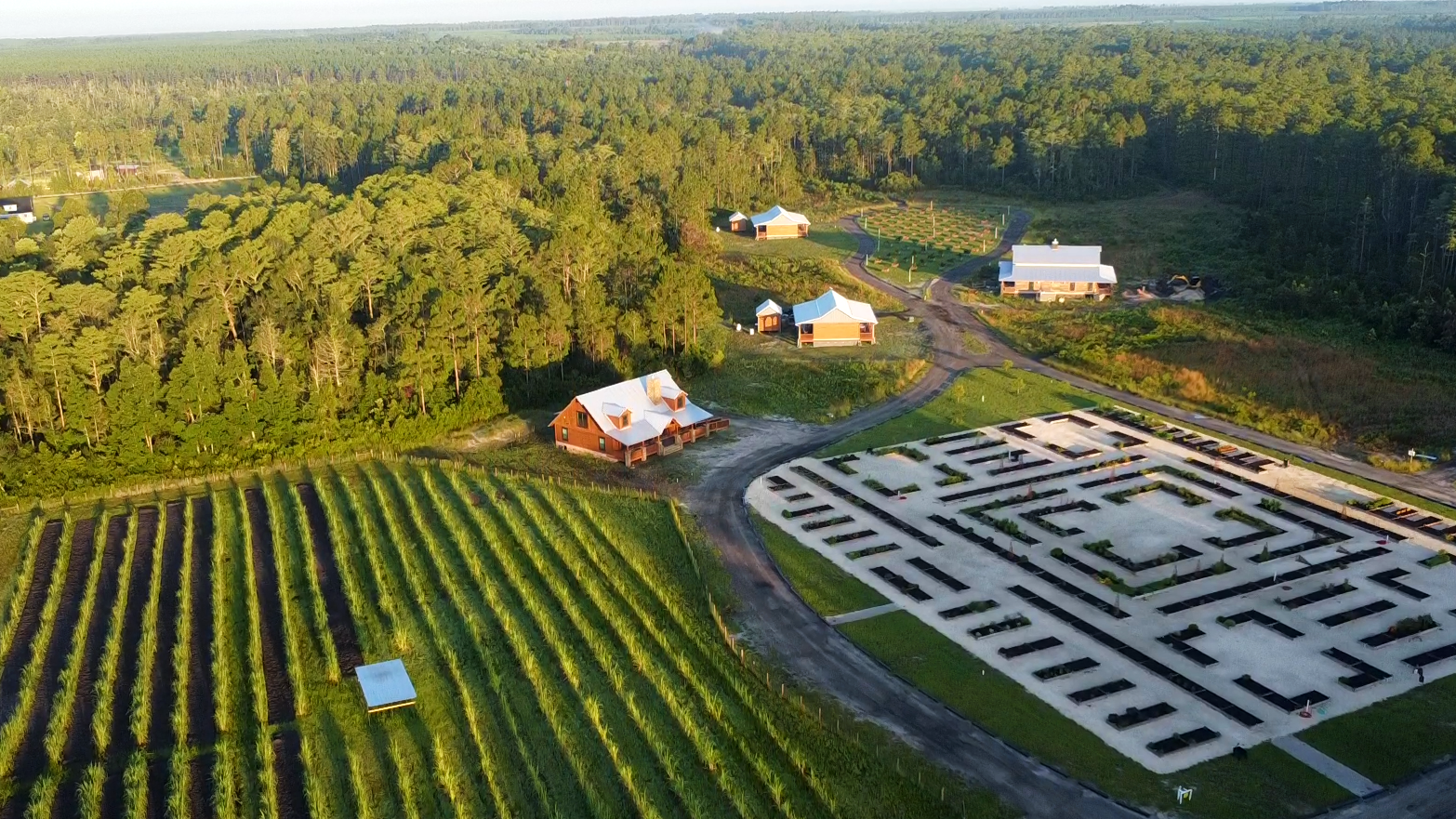One of our Pineywoods cattle decided she wasn’t going to wait until spring to expand the herd. Fortunately for us, her audience included several members of our farm crew as well as our videography partners, who captured the moment the baby said hello to the world.
The Farm at Okefenokee is home to 13 Pineywoods, one of the oldest breeds of cattle in the U.S., descending from Spanish cattle brought to the Americas beginning in the early 1500s. Spanish colonists established low-input, extensive cattle-ranging systems typical of Spanish ranching.
The Pineywoods, Florida Cracker, Texas Longhorn, and other breeds developed in the Americas are called criollo cattle, which means “of European origin but born in the New World.” The Pineywoods breed was shaped primarily by agricultural and environmental conditions in Alabama, Mississippi, Georgia, and other parts of the southeastern U.S. These conditions, along with some human selection, have resulted in a breed that is heat tolerant, long-lived, resistant to parasites and diseases, and able to be productive on marginal forage. Pineywoods cattle are used in the production of beef and occasionally used as dairy cattle.
According to The Livestock Conservancy, a nonprofit membership organization that works to protect 190 endangered livestock and poultry breeds from extinction, Pineywoods are high conservation priorities.
At The Farm at Okefenokee, our Pineywoods cattle roam freely in large pastures, grazing on grass, wild herbs, and other native plants and shrubs. This natural care produces a clean, richly “beefy” beef that is elevated above traditional store-bought cuts.
The cattle’s manure creates healthier soil because it’s rich in nutrients suitable for plant growth, including nitrogen, phosphorus and potassium. By nibbling on grasses and weeds, the cattle also help keep our pastures in tip-top shape without requiring many resources, including the oil and gas needed to mow regularly. Cattle hooves can compact the soil over time, so we regularly rotate the herd to different parts of the pasture, giving the land plenty of time to rebound. We also keep our pastures seeded with lush cover crops to help prevent over-compaction. Well-aerated soil is better able to absorb water and foster a healthy plant community.
Our newest Pineywoods baby, a sweet, yet-to-named bull, is already making himself right at home in the herd, while mama stays closeby. He’lll nurse for the next few months and it will take two years for him to be fully grown. Our newest addition joins our other heritage breed animals including Belgian horses, working mules, Meishan pigs, bourbon turkeys, African geese, and many more. We welcome you to meet mama, baby and all our animals so be sure to visit soon!



